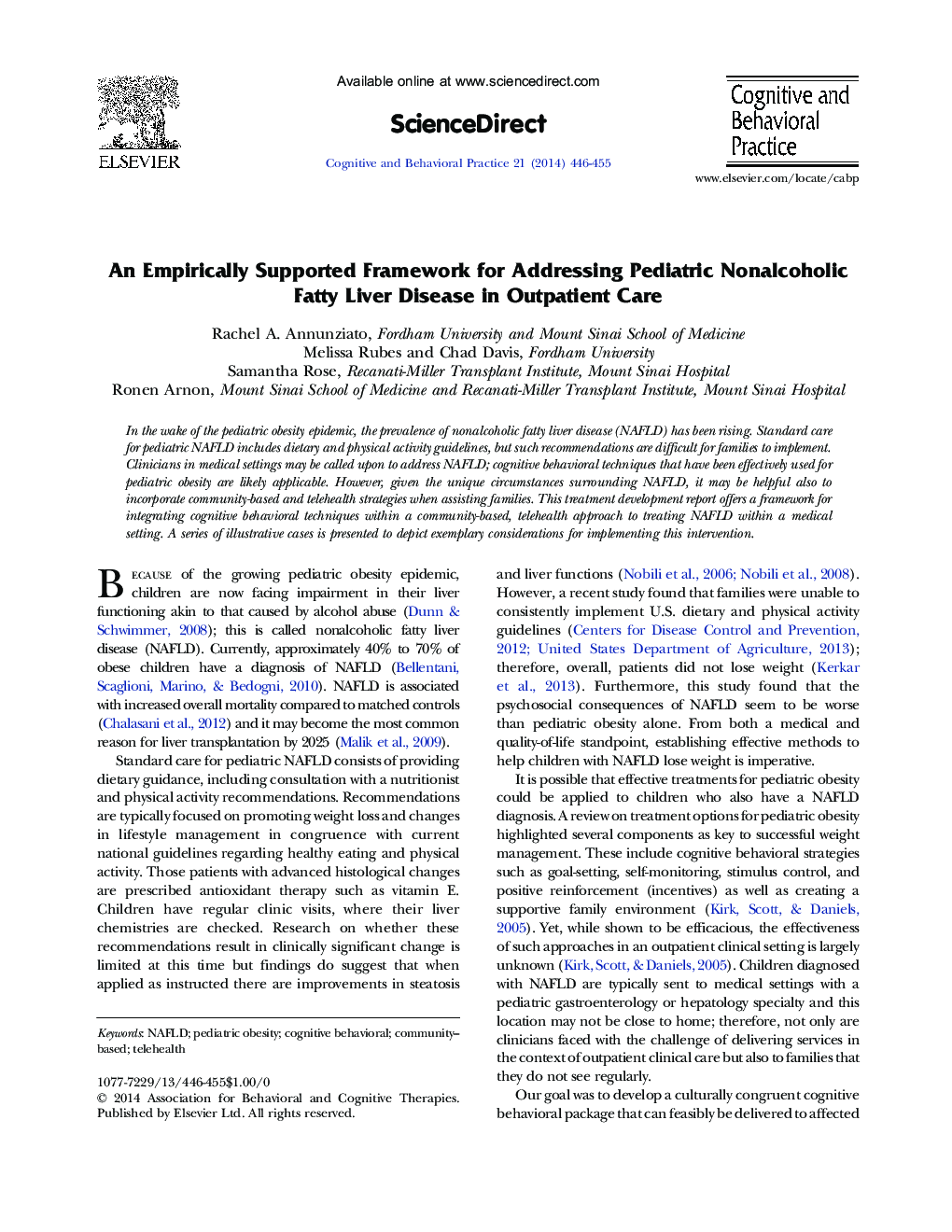| Article ID | Journal | Published Year | Pages | File Type |
|---|---|---|---|---|
| 904276 | Cognitive and Behavioral Practice | 2014 | 10 Pages |
•The prevalence of pediatric non-alcoholic fatty liver disease (NAFLD) is rising.•Strategies for addressing NAFLD in medical settings are needed.•A framework to treat NAFLD using cognitive behavioral techniques is described.•A series of cases is presented to illustrate this integrative approach.
In the wake of the pediatric obesity epidemic, the prevalence of nonalcoholic fatty liver disease (NAFLD) has been rising. Standard care for pediatric NAFLD includes dietary and physical activity guidelines, but such recommendations are difficult for families to implement. Clinicians in medical settings may be called upon to address NAFLD; cognitive behavioral techniques that have been effectively used for pediatric obesity are likely applicable. However, given the unique circumstances surrounding NAFLD, it may be helpful also to incorporate community-based and telehealth strategies when assisting families. This treatment development report offers a framework for integrating cognitive behavioral techniques within a community-based, telehealth approach to treating NAFLD within a medical setting. A series of illustrative cases is presented to depict exemplary considerations for implementing this intervention.
